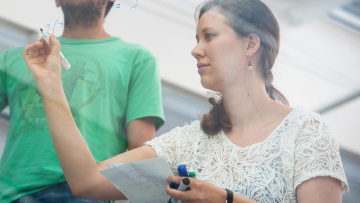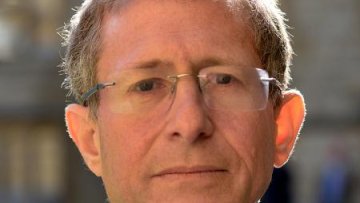Bernadette Stolz has received a L'Oréal-UNESCO For Women in Science UK and Ireland Rising Talent fellowship in the category of Mathematics and Computer Science.
Congratulations to Oxford Mathematician Ehud (Udi) Hrushovski who is the joint winner of this year's Shaw Prize in Mathematical Sciences for his "remarkable contributions to discrete mathematics and model theory with interaction notably with algebraic geometry, topology and computer sciences". He shares the prize with Noga Alon, Professor of Mathematics at Princeton University.
Hydrodynamic Approach to Integrable Quantum Field Theory
Abstract
Hydrodynamics allow for efficient computation of many-body dynamics and have been successfully used in the study of black hole horizons, collective behaviour of QCD matter in heavy ion collisions, and non-equilibrium behaviour in strongly-interacting condensed matter systems.
In this talk, I will present the application of hydrodynamics to quantum field theory with an infinite number of local conservation laws. Such an integrable system can be described within the recently developed framework of generalised hydrodynamics. I will present the key assumptions of generalised hydrodynamics as well as summarise some recent developments in this field. In particular, I will concentrate on the study of the SU(3)_2-Homogeneous sine-Gordon model. Thanks to the hydrodynamic approach, we were able to identify the key dynamical signatures of unstable excitations in this integrable quantum field theory and simulate the real time RG-flow of the theory between interacting and free conformal regimes.
The talk is based on joint work with Olalla Castro-Alvaredo, Cecilia De Fazio and Benjamin Doyon.



